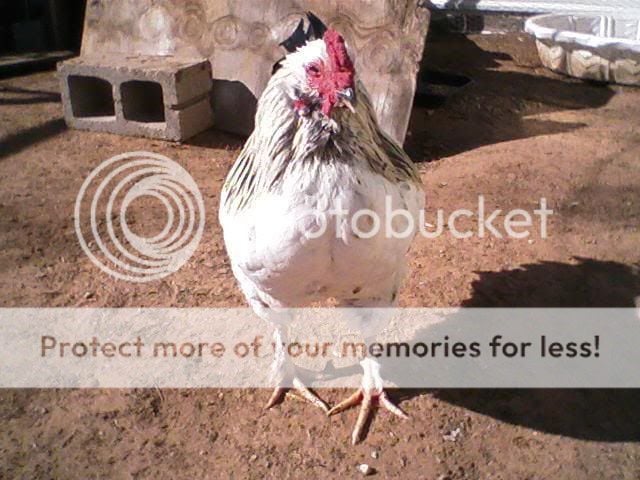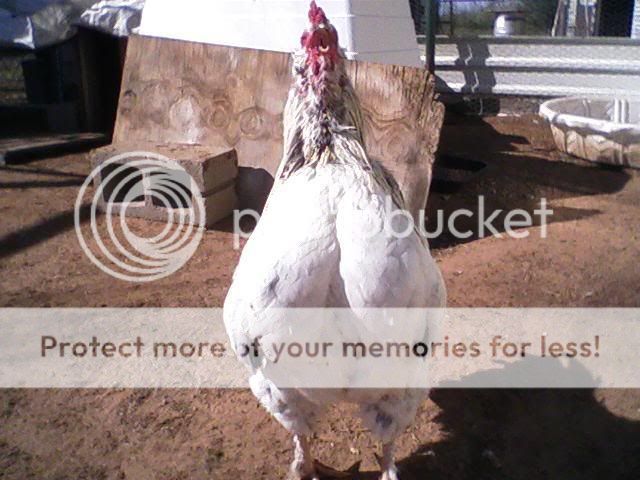Quote:
I am not totally in agreement with this and though I have only personal experience with one breed (silkies>btw dont think these cuddly fluffballs cant be mean!)
What I missed on the rooster blog (which the info is 100% correct and I am soooo glad to see the warning on the suffocation danger when holding the roo upside down!) is the measure I used which included extensive holding and keeping a nice lovable (pet) relationship with my roo despite the fact that he regularly challenged/charged me while in the yard. Let me explain further :
The holding technique often proved insufficient ... so before going to the "holding upside down measure" (which I did not want to initiate and never had to) I would use the "voice control measure" (more on that below)... this sometimes worked sufficiently and sometimes didn't >when it didn't and I was faced with a challenge (which would often would end by him charging) and the situation was not conducive to me picking him up (which at a certain point had long stopped being effective) >>>I would stand my ground and
meet his challenge... I would crow back (the challenge would ultimately begin with a crow) and when he charged , I too would run at him and we would "bump" (needless to say I would have to be adequately dressed or have a piece of cardboard handy to fend off any danger from spurs) ... I would continue doing this till he backed down (as he ultimately always did) and slink off pouting ... I would be left alone for a time after winning this challenge for a time. NEVER turn your back...at that moment he has psychologically "won".
The day of a challenge I would always reinforce the "voice control" measure:
When you have a half hour or so time, pick up roo and while holding and petting him and making the experience for him "enjoyable" (he WILL settle down and allow petting ) and give him some special treats likes mealworms... WHILE DOING THIS TALK IN A DIFFERENT TONE OF VOICE THAN YOU NORMALLY DO WITH CERTAIN REPEATED PHRASES > I would talk "baby talk" with mine and the key phrases I used while he was being held (using the baby-talk tone of voice) was "ooooooo WHAT a pretty baby...come here to mama"
...yeah I know what yer thinkin ...
...however, when I am out in the yard and I see him getting that "look" and know he is thinking about challenging me, I start to walk towards him with my arms open using the "tone of voice" and key phrase (oooo what a pretty boy...come to mamma) and he would know that I planned on picking him up etc.... Often that would be sufficient to make him slink off and forget about challenging/charging me . I luved this grumpy ole roo and many of you might wonder at my keeping him when he so often challenged me...he was meticulously caring with the girls, was never rough enough to hurt them or scratch their backs and though he would challenge me regularly he never really tried to spur me that I could tell and when he settled down when I picked him up he rEALLY enjoyed the attention and willingly sit in my lap which made it all worthwhile.
Picking him up and making the experience pleasant will also come in handy if he is ever sick and needs handling because he will not stress out about it and stress is the last thing you want when dealing with a sick or injured bird.














